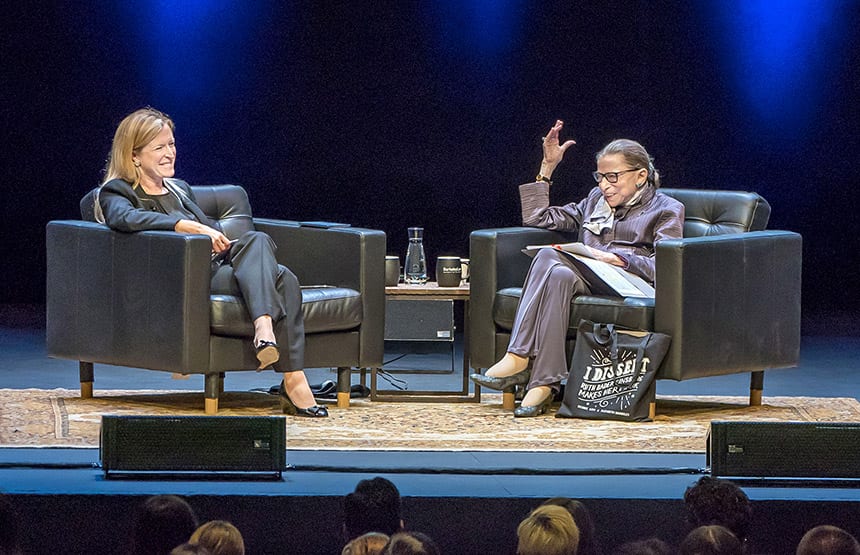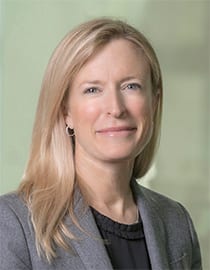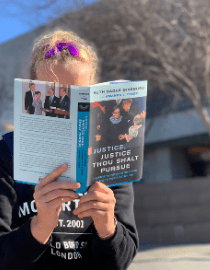‘Justice, Justice Thou Shalt Pursue’ Brings Justice Ruth Bader Ginsburg’s Berkeley Law Lecture to the World

U.S. Supreme Court Justice Ruth Bader Ginsburg looms large in Berkeley Law Professor Amanda L. Tyler’s life as a boss, a mentor, a role model — and, now, a co-author.
Justice, Justice Thou Shalt Pursue: A Life’s Work Fighting for a More Perfect Union, which has been released to great fanfare, bloomed from Ginsburg’s ties to Tyler and another Berkeley Law icon, the late Professor Herma Hill Kay. A large section of the book features the October 2019 lecture Ginsburg gave at the school in Kay’s memory, and the conversation between the justice and her former clerk that followed.

While Ginsburg was in Berkeley, they learned the University of California Press was considering publishing the project Kay spent decades working on: A history of the first 14 women to become professors at U.S. law schools. (Kay was the 15th, and the second woman to join the Berkeley Law faculty as well as its first female dean.) They hatched a plan to offer a book project based on Ginsburg’s lecture and their conversation to the Press, as an incentive to publish Kay’s book.
Paving the Way: The First American Women Law Professors will be published in April, joining Tyler’s book as part of a new Law in the Public Square series from the Press.
“To our collective delight, the Press was only too happy to take on both books, and now they’re releasing them together this spring as part of the new series,” Tyler says. “I’m really thrilled. And I know that if she were here, the justice would be really just over the moon to see this now all come to pass.”
A north star
After the Berkeley Law event, Tyler and Ginsburg worked on the book for months, even as Ginsburg’s health faltered. They last saw one another in person in January 2020, with emails and phone calls taking over once the pandemic stopped travel, and submitted the first draft of the book three weeks before Ginsburg died.
“It was really special — because every time I spent with her was really special — but this one took on a greater meaning, and that has only increased,” Tyler says. “It would be hard to overstate how lucky I feel to have been able to work on this project with her and be able to talk with her so much in the last months of her life.
“You know, she was a north star in my life, and in the life, I think, of all her law clerks.”
In addition to the Berkeley lecture and interview — a far-ranging reflection on her personal and professional life, as well as Kay’s legacy — the book collects some of Ginsburg’s most famous and influential legal work. Among them are her brief in Moritz v. Commissioner of Internal Revenue, in which she first argued that gender discrimination was unconstitutional, and some of her oral arguments as an advocate.
Readers can peruse several of her famously biting dissents, including in the Lily Ledbetter salary discrimination case, Shelby v. Holder, a voting rights case that has become a flashpoint, and her majority opinion that threw out the Virginia Military Institute’s all-male admissions policy. Several of Ginsburg’s last speeches are also included.
Finally, there is an afterword from Tyler. It begins simply: “This part of the book was not supposed to exist.”
“She had beaten cancer so many times with courage and grace, and had this almost superhuman ability to propel herself forward, such that I think I started to believe she was invincible,” Tyler says. “And so even knowing what I knew about her health, when I got the news that she had passed, it still shocked me, and it was devastating.”
Completing the project on her own has been bittersweet.
“I am so proud and I feel so fortunate to have been a part of this project with her. And I’m so, so happy to see the release of Herma’s book that I know was so important to her,” Tyler says. “But it is a constant reminder that she’s not here anymore. And I miss her. I miss her terribly. Clerking for her changed my life, in so many ways. It wasn’t just all the things she taught me about how to be a good lawyer, and how to think about the Constitution. It was also that she taught me a lot about how to live a good life, how to be a good person, how to choose a great partner in life.”

Now, it is Tyler who is doing the talking, on a whirlwind virtual book tour that includes a March 16 event with Ginsburg’s granddaughter, Clara Spera; a March 22 talk with New York University Law School Dean Trevor Morrison; an April 6 conversation with feminist icon Gloria Steinem; and an event with journalist Soledad O’Brien April 15. The book is generating lots of buzz, and Tyler has already done interviews with National Public Radio, People magazine, and many more.
Kirkus Reviews calls the book “an informative perspective on a tireless advocate for fairness and equity.” Harvard Law Professor Lawrence H. Tribe wrote, “With Justice Ginsburg, Amanda Tyler has compiled a page-turning book that is the perfect tribute to her former employer and hero, the incomparable Ruth Bader Ginsburg. … Bringing a legend to life isn’t easy. With Ginsburg, Tyler has done that and more — lovingly and with deep understanding.”
A fresh appreciation
Tyler says she fervently hoped Ginsburg would live to see both books published. More importantly, she wished Ginsburg had the opportunity to retire, rest, and reflect. She regrets that the timing of Ginsburg’s death, just weeks ahead of the 2020 presidential election, meant that political warfare largely eclipsed a broader appreciation of her legacy.
“I hope that our book is an inspiration, a sort of call to arms to people to continue the work that she was doing, and that defined her,” Tyler says. “As I’ve said before, I think she’s one of the most important Americans ever to have lived. And I honestly think whether she’d ever sat on the Supreme Court or not, I would be sitting here saying that. She changed American society tremendously through her work, and particularly her work in the ’70s, and created a much better, more just society from which all of us have benefited.”
She and Ginsburg carefully planned their Berkeley Law conversation — as Ginsburg did with everything. But Tyler remembers feeling frustrated to not be able to ask more of the questions they had planned to cover. As she sat on the stage, she saw Ginsburg’s security detail looking at their watches, encouraging her to wrap it up.
“I just wanted to keep interviewing her,” Tyler says. “I was having so much fun, and I knew the audience was enjoying it. But I also knew that by that point, she’d been on stage for quite a long time. And so finally, we did cut the cord.
“But I wish, in retrospect, that we had gone on a little longer.”
